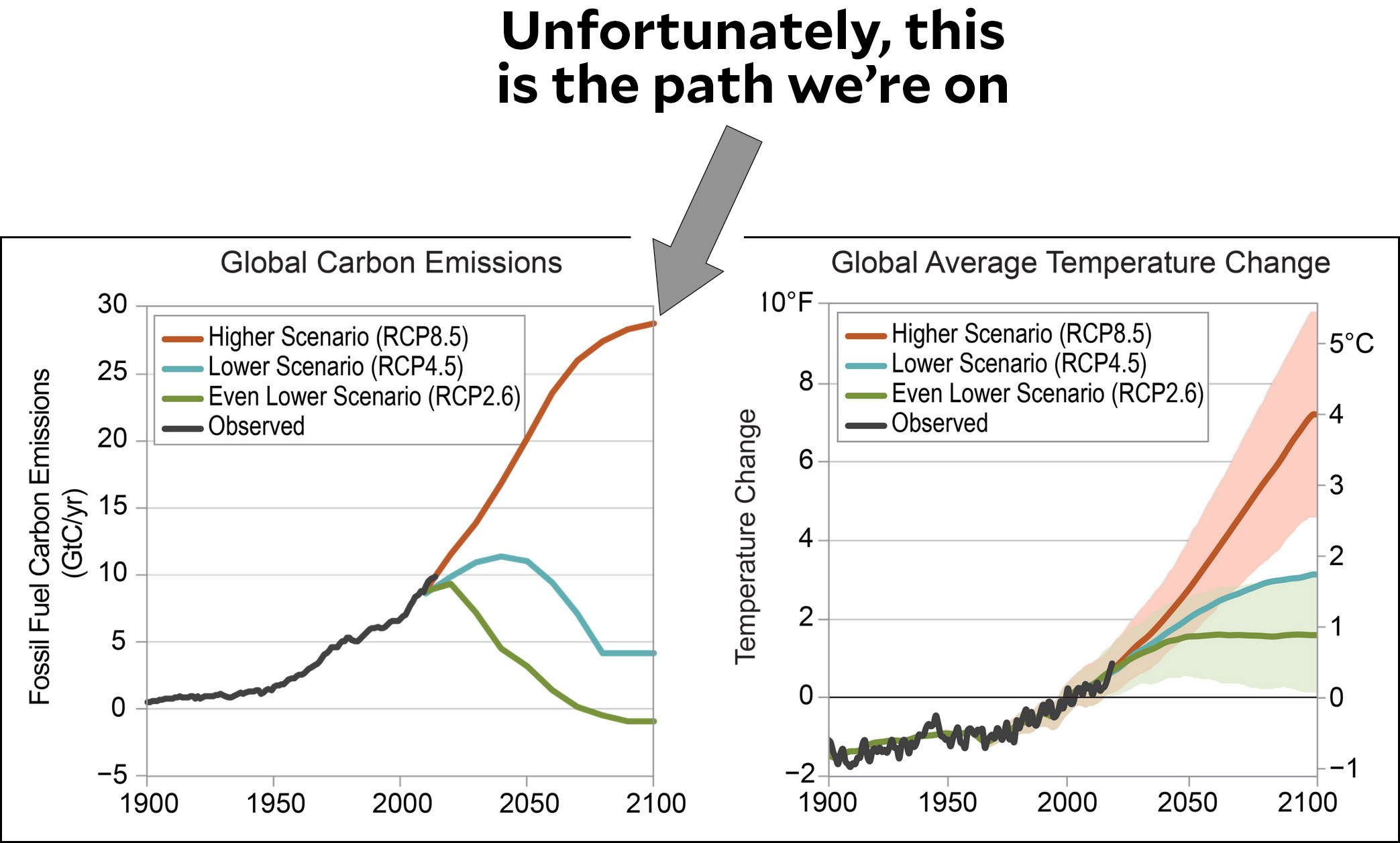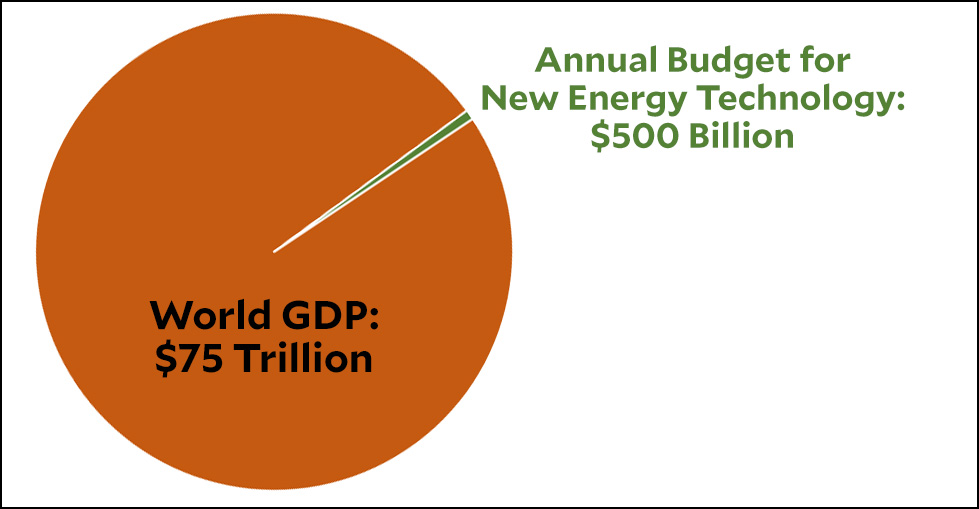David Roberts has a point here:
Adding to this: a list of your favored policies is not a “plan.” A plan involves a way of inspiring thousands of people to organize & take action & drive your policies onto the national political agenda & scare politicians who dare to vote against it. https://t.co/S2PQO740a2
— David Roberts (@drvox) February 17, 2019
Anyone with a 3-digit IQ can do a bit of googling and come up with a set of policies to reduce carbon emissions. But a plan—now that’s a different thing. A plan has to be an actual course of action with both a goal and a chance of success. We should be able to line up your plan with all the others and extract two numbers about each one: (1) emission levels in 2050 if the plan works, and (b) consensus probability that the plan will work.
I don’t have such a plan in mind, of course, but I do have a few guidelines that I think could help someone win this game:
- Think international. Yes, yes, the Republican Party is hopeless right now and that makes America a non-player. But you shouldn’t obsess about America anyway. Any plan that’s worth the paper it’s written on will focus on things that are most likely to work all around the world.
- Focus on getting the biggest bang for the buck. “Biggest bang” is pretty obvious: it just means reducing carbon emissions as much as possible as fast as possible. But “for the buck” means more than just the lowest possible price tag. “Price” should be seen as both dollars and as personal sacrifice. The more sacrifice you ask of people, the bigger the cost. The lower the sacrifice, the better chance you have of getting widespread buy-in.
- Forget the free market. There’s no profit in addressing climate change. In fact, the profit is almost entirely on the other side. This means that any plausible plan has to include lots of government subsidies: subsidies for solar, subsidies for wind, subsidies for electric cars, subsidies for reforestation, etc. Basically, you should accept that virtually every policy you support will happen only to the extent that the government subsidizes it.
- Lots of shared R&D. We could address climate change solely with existing technology. The problem is that even with truckloads of subsidies, it would demand more sacrifice than people are likely to accept. That means that we desperately need new and better technology on all fronts as soon as possible. This should be a Manhattan Project kind of thing, and in this case it’s OK to be America-centric. Obviously other countries do scientific research as well, but America does the most. What’s more, a project like this really would motivate other countries to get on board with R&D of their own.
And how will all this be paid for? The obvious answer is a whopping big progressive carbon tax. This would provide plenty of money for all those subsidies and would provide a tailwind for all the other carbon-reduction policies you come up with. However, a whopping tax means a big sacrifice, and that probably dooms it to fail. A carbon tax that starts small but steadily increases is one compromise that might work. A carbon tax that pays for more than just climate change might also reduce opposition.
There are plenty of other possibilities. The main thing is to be rigidly realistic at all times. If you ask too much of people, they won’t support your ideas no matter how great they are. And even if they do, they aren’t likely to respond appropriately to the scale of the problem on their own. I haven’t, after all. Neither have you. But that’s OK: climate change won’t be affected much by personal action anyway. It’s too big. Like a war, it requires action on a governmental scale. Unlike a war, however, it has no human enemy to spur citizens to accept the sacrifice it takes to win. It’s up to us to come up with an alternative.







